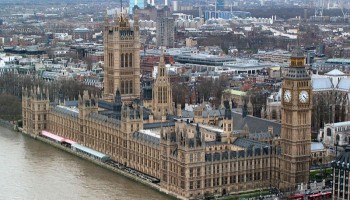Government IT Projects Cost Taxpayers £16bn Per Year

The Institute for Government says costs can be reduced by taking a more flexible approach to IT
The government is wasting billions of pounds worth of taxpayers’ money on IT projects that are failing to keep up with the fast-paced technological environment of modern society, according to the Institute for Government (IfG).
The report, entitled ‘System Error: fixing the flaws in government IT‘ claims that, despite government IT projects costing the tax payer around £16 billion per year, the “glacial pace” of procurement and implementation is resulting in repeated system-wide failures.
“Most attempts to solve the problems with government IT have treated the symptoms rather than resolved the underlying system-wide problems,” stated the report. “This has simply led to doing the wrong things ‘better’.”
Collaboration and flexibility
The government is advised to take an “agile” approach to IT projects and set shared standards, which the Institute claims will cut costs and reduce duplication. The report emphasises the need for adaptability and flexibility while retaining the benefits of scale and collaboration across government.
 “The billions spent on cancelled IT projects, such as ID cards and NHS National Programme for IT, demonstrate precisely why we need a much more flexible approach to government IT,” said Baron Andrew Adonis, director of the IfG, who is a Labour peer and former secretary of state for transport. “This report shows there is a better way that is more flexible and allows for the fact that government priorities continuously shift.”
“The billions spent on cancelled IT projects, such as ID cards and NHS National Programme for IT, demonstrate precisely why we need a much more flexible approach to government IT,” said Baron Andrew Adonis, director of the IfG, who is a Labour peer and former secretary of state for transport. “This report shows there is a better way that is more flexible and allows for the fact that government priorities continuously shift.”
In April last year, Edward Leigh MP issued a damning assessment of the previous Labour government’s record of IT spending. In an open letter to his successor as Chair of the Committee of Public Accounts, he lambasted departmental IT projects that were “over-ambitious, overly complex and fail to deliver what is promised while costs rocket.”
The coalition government’s subsequent spending cuts in ICT and other sectors have reportedly achieved efficiency savings of £1 billion since May 2010, with more than £400 million coming from halting major projects, such as ID cards. The coalition has said it hopes to save a total of £3 billion during its first year in power.
“This government is leaving no stone unturned in cutting unnecessary and excessive expenditure to protect jobs and the frontline services on which people depend,” said Cabinet Office minister Francis Maude.
Adapting to the shock of the new
The government has also been renegotiating contracts with large vendors, signing ‘memoranda of understanding‘ in an effort to cut costs. HP, Oracle, Microsoft, Atos Origin and Capgemini have all signed, as well as several other big name IT services firms.
“The scale of government IT is enormous,” stated the IfC’s report. “Faced with such complexity, the lesson inherent in the principles of agile is not to try and develop a perfect roadmap for change up-front but to work up plans iteratively and to refine the approach over time based on user interaction and feedback.
“Our analysis suggests that even small steps towards developing the platform and using agile techniques will deliver real benefits. ‘Quick wins’ will help to build support for change early on while developing a longer term plan. No system is perfect and no system is immune to change. Having a more flexible and agile system is the best way to keep adapting to the shock of the new,” it added.